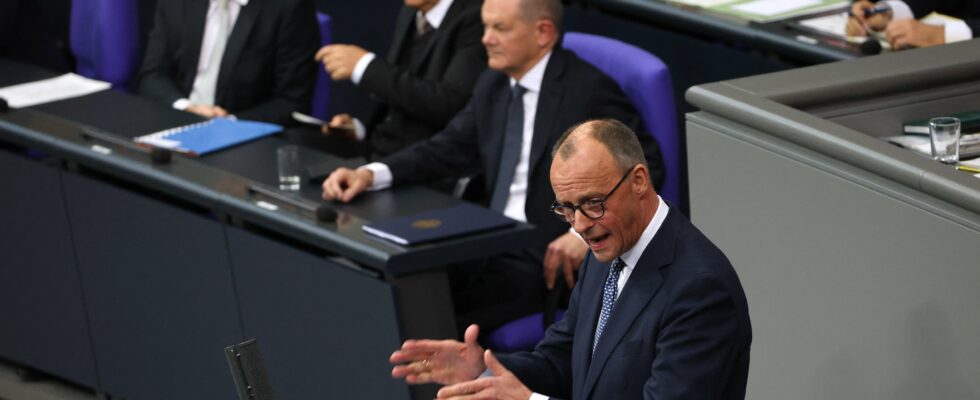The French economy has rarely been as destabilized as over the last six months. Since the dissolution of the National Assembly, the CAC 40 has fallen by 7%, the country’s sovereign rating has once again been downgraded, the public deficit has reached 6.1% of GDP. A drift that legitimately worries 90% of French people, a record level since Covid-19. At the start of 2025, however, France is not alone in facing turbulence. While, in France, the political crisis threatens to become economic, on the other side of the Rhine, it is an economic crisis which brought down the coalition led by Scholz.
Overthrown on December 16, 2024, the chancellor paid the price for the triple dependence of the German economy: energy, security and trade. These relationships, which until recently guaranteed Germany’s prosperity in a peaceful Europe, have become major constraints and require significant efforts to free themselves from them. In terms of energy, after giving up nuclear power, Germany built its competitiveness on cheap and abundant Russian gas, which represented up to 55% of its imports. But the war in Ukraine upset this balance: supply disruptions and soaring costs hit German industry hard. The debate on a return of the atom, guarantor of energy sovereignty and price stability, is resurfacing today, supported by part of public opinion and a more pragmatic right.
Security is another German dependency. Long protected by the United States, Berlin has limited its military spending. But the return of war to the European continent, combined with an increasingly isolationist America, now forces the country to make up for lost time. Finally, on the commercial front, Germany is suffering both protectionist threats from an American president determined to increase customs duties – a measure which could cost 1% of German GDP – and the consequences of the Chinese economic slump. Beijing, long the driving force behind German exports, is now a formidable competitor in several industrial sectors. In addition, Germany’s new strategy to reduce dependence on Chinese components to secure its supply chains has weighed on trade. So in one year, total German exports have already fallen by 3.5%.
As a result, Germany is entering its second consecutive year of recession, a situation not seen since 2009. The behemoths of industry, symbols of the reputation of “Deutsche Qualität”, find themselves in turmoil. Volkswagen plans to cut 35,000 jobs, or 29% of its workforce in Germany. Automotive supplier ZF Friedrichshafen will reduce its workforce by a quarter, or 14,000 jobs. Bosch plans 3,850 layoffs in the country, Continental, 5,000 job cuts mainly in its German factories. These announcements are probably only the beginning of a long dark streak: almost 40% of companies are considering job cuts in 2025, and a third of them will reduce their investments in Germany.
It is in this context and in the face of the inability to agree on measures to support the economy that the break between social democrats, liberals and ecologists was consummated: dismissal on November 6 of the Minister of Finance, followed the following month by the failure of the vote of confidence in the chancellor. A disavowal which led to the dissolution of the Bundestag and will lead to the holding of new elections in February. But unlike the French, forced to endure the most anxiety-provoking instability for many more months, our German neighbors will have the opportunity to quickly clarify the situation: get their country out of political paralysis but above all allow the new federal government to provide solutions to revive the economy. Enough to leave us dreaming on the other bank of the Rhine…
Jean-François Copé, former minister, is mayor (LR) of Meaux
.
